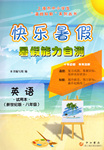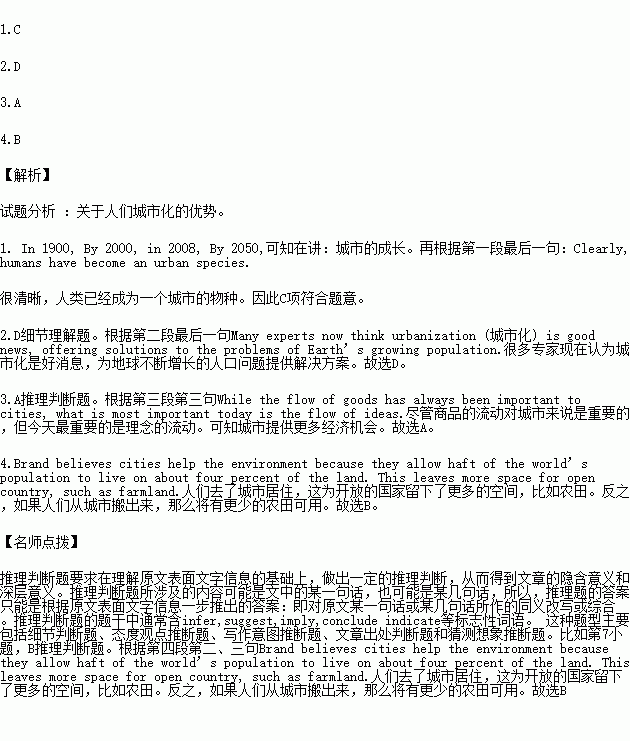题目内容
In 1800, only three percent of the world's population lived in cities. Only one city — Beijing — had a population of over a million. Most people lived in rural areas, and never saw a city in their lives. In 1900, just a hundred years later, roughly 150 million people lived in cities, and the world’s ten largest cities all had populations exceeding one million. By 2000, the number of city dwellers exceeded three billion; and in 2008, the world's population crossed a tipping point — more than half of the people on Earth lived in cities. By 2050, that could increase to over two-thirds. Clearly, humans have become an urban species.
In the 19th and early 20th centuries, many people viewed cities negatively — crowded, dirty environments full of disease and crime. They feared that as cities got bigger, living conditions would worsen. In recent decades, however, attitudes have changed. Many experts now think urbanization (城市化) is good news, offering solutions to the problems of Earth’s growing population.
Harvard economist Edward Glaeser, author of The Victory of the Cir, is one such person. Glaeser argues that cities are very productive because “the absence of space between people” reduces the cost of transporting goods, people, and ideas. While the flow of goods has always been important to cities, what is most important today is the flow of ideas. Successful cities enable people to learn from each other easily, and attract and reward smart people with higher wages.
Another urbanization supporter is environmentalist Stewart Brand. Brand believes cities help the environment because they allow haft of the world’s population to live on about four percent of the land. This leaves more space for open country, such as farmland. City dwellers also have less impact per person on the environment than people in the countryside. Their roads, sewers, and power lines need fewer resources to build and operate. City apartments require less energy to heat, cool, and light. Most importantly, people in cities drive less so they produce fewer greenhouse gases per person.
So it’s a mistake to see urbanization as evil; it’s a natural part of development. The challenge is how to manage the growth.
1.What is Paragraph 1 mainly about?
A. The history of modern cities.
B. Changes taking place within cities.
C. How cities have grown over time.
D. Why modern cities are changing.
2. How have experts’ attitudes towards cities changed in recent decades?
A. They now view the weaknesses as strengths.
B. They no longer see city-riving as attractive.
C. They accept city life in spite of its problems.
D. They think city-riving provides more benefits.
3. Which of the following would Edward Glaeser agree with?
A. Cities provide more economic opportunities.
B. City people get along better with each other.
C. Over-crowded cities result in problems.
D. Cities limit the flow of ideas.
4.According to Paragraph 4, what would be the result of moving people out of cities?
A. Economic production would be reduced.
B. There would be less farmland available.
C. People would travel less frequently.
D. House values would fall greatly.
 快乐暑假暑假能力自测中西书局系列答案
快乐暑假暑假能力自测中西书局系列答案
